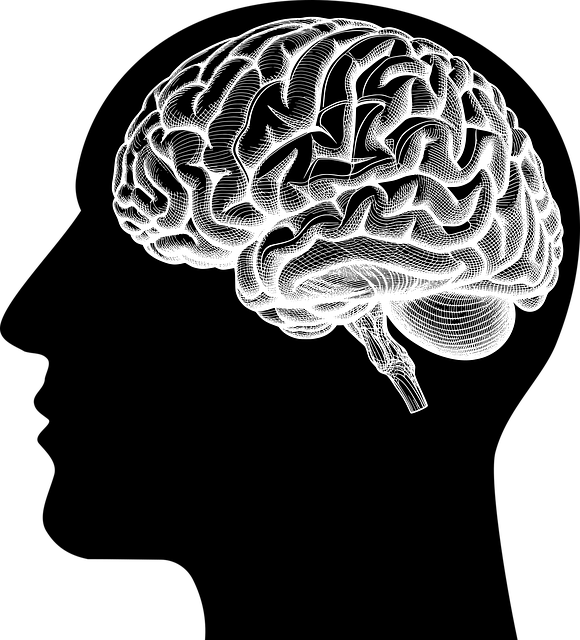Englewood Eating Disorders Therapy leads public awareness campaigns focusing on educating communities about eating disorders and reducing stigmatization through accessible information and targeted outreach. Their holistic approach combines education with mental wellness coaching, addressing anxiety and stress management for tailored recovery solutions. By understanding local dynamics and implementing initiatives like Community Outreach Programs and Mental Wellness Journaling Exercises, Englewood empowers residents to seek help when needed. Robust evaluation strategies measure campaign success, tracking participation rates, knowledge gain, and attitude changes, ultimately improving outcomes through empowered individuals adopting healthier practices.
Public awareness campaigns play a pivotal role in combating eating disorders, especially in underserved communities like Englewood. This article delves into three key aspects: understanding the power of education in eating disorders therapy, exploring effective campaign strategies tailored for Englewood communities, and evaluating the success of initiatives through impact measurement. By focusing on these areas, we aim to enhance the accessibility and effectiveness of treatment for eating disorders in Englewood Eating Disorders Therapy.
- Understanding Public Awareness: The Role of Education in Eating Disorders Therapy
- Designing Effective Campaigns: Strategies for Englewood Communities
- Measuring Impact and Success: Evaluating the Effectiveness of Eating Disorders Awareness Initiatives
Understanding Public Awareness: The Role of Education in Eating Disorders Therapy

Public awareness campaigns play a pivotal role in educating communities about eating disorders, with Englewood Eating Disorders Therapy at the forefront of this initiative. Understanding public perceptions and providing accessible information are crucial steps in combating stigmatization. Through targeted outreach, individuals can gain insights into the complexities of these conditions, fostering empathy and encouraging early intervention.
Education serves as a powerful tool within therapy, offering mental wellness coaching programs that address underlying issues like anxiety and stress management. By integrating these strategies, Englewood Eating Disorders Therapy aims to develop comprehensive solutions, ensuring individuals receive holistic support tailored to their unique needs. Such approaches not only promote recovery but also contribute to the broader goal of enhancing overall mental wellness.
Designing Effective Campaigns: Strategies for Englewood Communities

Englewood communities face unique challenges when it comes to public awareness campaigns, particularly in addressing issues like eating disorders. To design effective campaigns, a holistic approach is essential. This involves understanding the specific cultural and social dynamics of the community while incorporating evidence-based strategies tailored to the needs of residents.
One powerful strategy is integrating Community Outreach Program Implementation initiatives that foster open dialogue about mental health. Encouraging individuals to keep Mental Wellness Journaling Exercises can provide a safe space for reflection and self-exploration, enhancing resilience building. By combining these approaches, Englewood communities can create a supportive environment where residents feel empowered to seek Englewood Eating Disorders Therapy when needed.
Measuring Impact and Success: Evaluating the Effectiveness of Eating Disorders Awareness Initiatives

Measuring impact and success is a crucial aspect of evaluating the effectiveness of eating disorders awareness initiatives. By implementing robust evaluation strategies, organizations like Englewood Eating Disorders Therapy can assess the reach, engagement, and long-term benefits of their campaigns. This includes tracking key metrics such as campaign participation rates, knowledge gain among target audiences, and changes in attitudes or behaviors related to eating disorders. Well-designed surveys, focus groups, and qualitative data collection methods play a vital role in understanding the impact on individuals and communities.
Effective awareness initiatives should not only educate but also empower individuals to take action. For instance, a successful campaign might encourage individuals to adopt healthier self-care routines for better mental health (as promoted by community outreach program implementation and healthcare provider cultural competency training). By fostering open conversations and providing accessible resources, these efforts can lead to earlier interventions and improved outcomes for those struggling with eating disorders.
Public awareness campaigns play a pivotal role in addressing eating disorders within communities, such as Englewood. By combining education with targeted strategies, initiatives like these can empower residents to recognize and support those affected. Through measured evaluation, we can ensure that efforts like the ones discussed here effectively drive positive changes in Englewood Eating Disorders Therapy, ultimately fostering healthier and more informed communities.














